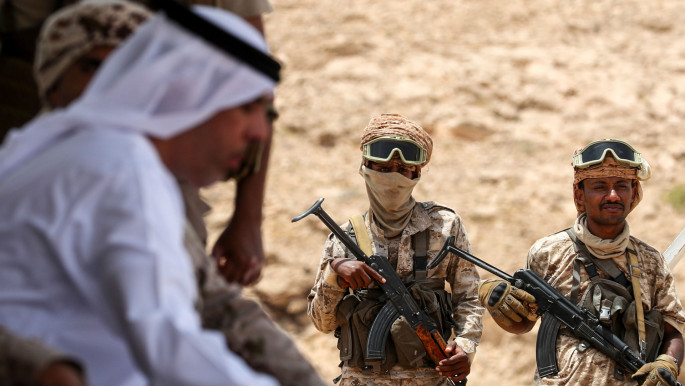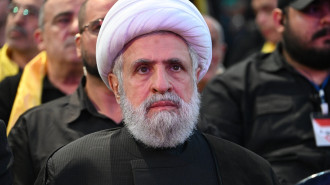Atrocities against Yemeni children hit 12,000
Sadly, the incident was no outlier. A new report from the United Nations has verified almost 12,000 such grave violations against children between April 2013, when Yemen's political crisis was spiralling into an all-out civil war, and the end of 2018.
The world body's new 16-page document "paints a devastating picture of the violations affecting boys and girls over the past five years," UN spokesman Stephane Dujarric told reporters in New York this week.
"With over 7,500 cases, the most prevalent violation documented by the UN was the killing and maiming of children. The report also documents high levels of recruitment and use of child soldiers."
The document comes at a key time.
Within weeks, UN secretary general Antonio Guterres will publish an annual "list of shame" of armed groups that commit atrocities against youngsters – a list that has in the past named and embarrassed the Saudi-led coalition.
In its new report, the UN blames all sides. Too often, Houthi rebels recruit children as young as 10, give them Kalashnikovs and send them to the front lines. All the while, strikes by Saudi and UAE jets end the lives of youngsters far too early.
Researchers confirmed 3,034 cases of children being recruited into armed forces, mostly the Houthi rebel group, which took the Yemeni capital Sanaa in 2014 and say they are waging a revolution against corruption.
The UN also confirmed that 2,776 children were killed and 4,732 were maimed by the fighting. Almost half of these deaths and injuries were attributed to airstrikes and aerial attacks – mostly from the coalition, which supports the government of President Abed Rabbo Mansour Hadi.
 |
The UN also confirmed that 2,776 children were killed and 4,732 were maimed by the fighting. Almost half of these deaths and injuries were attributed to airstrikes and aerial attacks – mostly from the coalition |  |
On their own, these numbers are shocking. But the "reality is likely harsher", the report says. Armed groups punish members for talking about the use of child soldiers; while data on deaths from coalition airstrikes are patchy at best.
 |
|
| Read also: Yemen in Focus: UAE 'retreats from conflict' to protect its own borders |
Military commanders have shown "blatant disregard" for the welfare of children during the conflict, the report says. Virginia Gamba, the UN's envoy on children and armed conflict, blamed them for doing little to protect the vulnerable.
"Despite some positive measures adopted by parties to conflict to protect boys and girls from grave violations, the suffering of children in Yemen has worsened during the reporting period, becoming simply appalling," said Gamba
The worst year of the war for children was 2015, when Saudi and other coalition members joined the conflict, and 3,555 grave violations were recorded against youngsters. Still, there have been more than 2,000 such abuses against children documented every year since.
"The children of Yemen had nothing to do with the start of this conflict, they should now be given the opportunity to exit from it and be assisted to fully recover," said Gamba. "The children of Yemen deserve better and their voices should be heard."
The Yemen conflict has pushed what was already the Arabian Peninsula's poorest nation to the brink of famine and killed tens of thousands of people since March 2015, according to the World Health Organization.
Fighting has triggered what the UN describes as the world's worst humanitarian crisis, with 3.3 million people displaced and 24.1 million – more than two-thirds of the population – in need of food, medicine and other aid.
The Saudi-Emirati alliance intervened in Yemen in 2015 to try to restore the government that was overthrown by the Houthis. It is largely seen as a proxy war between Saudi Arabia and Iran, which publicly supports the rebels.
Hopes of a diplomatic breakthrough were raised with the signing of a deal in Sweden in December 2018, but its implementation in the Red Sea port city of Hodeida has been slow and fighting continues elsewhere in the country.
"The recent developments in the peace process must lead to tangible progress on the ground. The civilian population, especially children, is kept hostage of a conflict they didn't choose to be in," Gamba said in a statement.
James Reinl is a journalist, editor and current affairs analyst. He has reported from more than 30 countries and won awards for covering wars in Sri Lanka, Congo and Somalia, Haiti's earthquake and human rights abuses in Iran.
Follow him on Twitter: @jamesreinl

![Palestinians mourned the victims of an Israeli strike on Deir al-Balah [Getty]](/sites/default/files/styles/image_684x385/public/2024-11/GettyImages-2182362043.jpg?h=199d8c1f&itok=xSHZFbmc)


![The law could be enforced against teachers without prior notice [Getty]](/sites/default/files/styles/image_684x385/public/2178740715.jpeg?h=a5f2f23a&itok=hnqrCS4x)
 Follow the Middle East's top stories in English at The New Arab on Google News
Follow the Middle East's top stories in English at The New Arab on Google News


